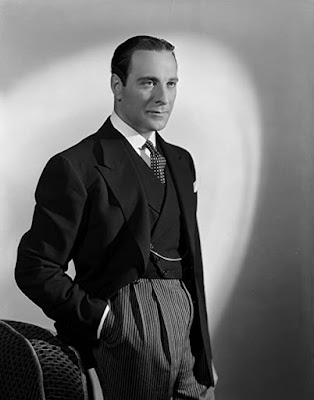Starring: Warren William, Margaret Lindsay, Allen Jenkins, Owlin Howland, Donald Woods, Thomas E. Jackson, Claire Dodd, and Barton MacLane
Director: Michael Curtiz
Rating: Six of Ten Stars
Famed defense attorney Perry Mason (William) must uncover the truth buried beneath lies and police corruption when a former lover (Lindsay) comes to him for help with a blackmail case but ends up being accused of murdering the blackmailer.
"The Curse of the Curious Bride" was the second Perry Mason film produced by Warner Bros. during the mid-1930s. Reportedly, although film reviewers said nice things about it at the time, and it did well financially, Perry Mason's creator, Earl Stanley Gardner strongly disliked it. And I think it's clear why.
Although the film is fast paced, features an engaging mystery with stakes that keep getting raised as it goes, and a suspect pool that keeps getting larger instead of smaller as the story unfolds, it spends too much time trying to be a comedy. From banter that isn't entertaining, to scenes that are supposed to be funny but are mostly just dumb, and renaming and reshaping of Paul Drake into the third-rate comic relief Spudesy Drake, just about every attempt at humor in this film falls flat and just lays there on the floor, stinking like a dead fish in the sun. They only supposed-to-be-funny bits that come close to working is when Perry Mason is being overly dramatic and flamboyant in front of newspaper reporters.
It's a shame that the filmmakers decided to lean so heavily on badly done comedy in this picture, because, unlike so many other Perry Mason tales, this one gives a lot of insight into what he does for fun and who he spends time with outside of the law offices and courtrooms. In some ways, Mason feels like a more fully rounded character in this film than he did even after the total of two decades of television series and made-for-TV movies starring Raymond Burr. This aspect, combined with the fact that the film features a great cast, which could have made this a great Perry Mason movie is why I'm giving it a Six instead of the Five it probably deserves.
Another quirk of the film is that it never enters a courtroom; in fact, the case at the center of the film never even makes it to trail. While the concluding "action" doesn't always take place in a oourtroom in Perry Mason stories, there's at least some sort of legal proceeding at some point. Here, the closet we get is Mason meeting with the District Attorney, in a scene that's more there to underscore the corruption of the D.A. and the police department more than anything else.
And speaking of the corrupt police department... corruption is another aspect of this film that's unusual when compared to other Perry Mason screen adventures I've seen. While the police and prosecutors are often shown as either dimwitted, lazy, or just unwilling to look beyond their initial conclusions when it comes to getting their convictions, they aren't usually out-and-out corrupt like they are here. For example, the police detectives don't just go where the evidence takes them here--they all but frame their prime suspect for murder while the prosecutor prevents Mason from seeing her. (On the other side of the coin, however, Mason engages in corruption to a degree that I've also not seen any screen incarnations do up to this point. While I'm used to Mason playing a bit loose with the spirit of the law or bending procedural rules, and even the law, almost to the breaking point, he goes well beyond that in this film.)
Some of the elements which seemed out of place to me probably did not appear that way to audiences in 1935. Corrupt police and prosecutors were the norm in detective films of the day, and the Perry Mason Formula didn't have 85 years of development behind it like it does now. (And, for that matter, the corruption of the justice system that exists everywhere in this movie might be something that will allow newcomers to Perry Mason--via the excellent series that recently ran on HBO.)
"The Case of the Curious Bride" in included with five other Perry Mason films that were produced by Warner Bros. in the 1930s. It's a reasonable priced set, and I think it's worth checking out for Perry Mason fans, old and new.































.jpg)
